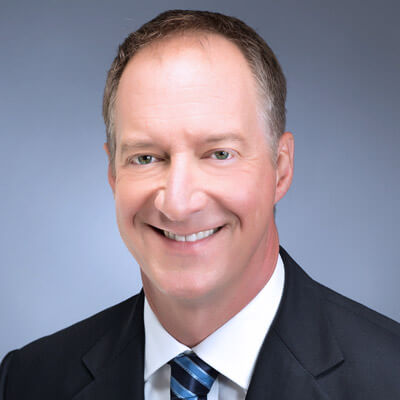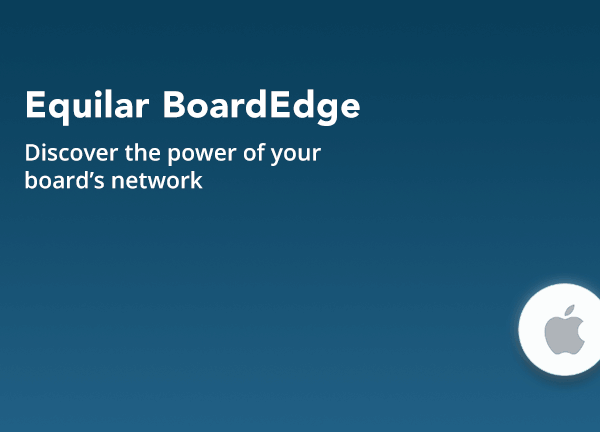Equilar Institute
Blog Home
Exclusive Interview: Retain and Recruit Executives With More Than Pay

July 06, 2017

Ed Walker
CEO
ArmadaGlobal
Dollars and cents receive most of the ink when talking about executive rewards packages, and undoubtedly that is a top factor in CEO recruitment and retention. Yet many top executives are lacking time, not money. Dan Marcec, Editor-in-Chief for the Equilar Institute, sat down with Ed Walker, CEO at ArmadaGlobal, an insurance services and healthcare technology business, for an exclusive interview to discuss how specialized healthcare services can provide a boost to compensation and total rewards plans for executives.
Walker aptly notes that sometimes it’s simpler things that can make the biggest difference, and companies that look out for their executives’ health and well-being are likely to have a leg up in this hot recruiting market. If they can give time, they can get talent.
The insurance service division of ArmadaGlobal, ArmadaCare develops, manages and distributes proprietary specialty insurance products to brokers and their clients and in collaboration with premier insurance carriers. Its signature product offering, Ultimate Health, is a market-leading executive benefit program that combines robust medical reimbursement insurance plan with a strategic health and wellness program designed to keep a company’s top performers healthy, productive and focused on their job. Learn more at https://ultimatehealth.armadacare.com/equilar
Equilar: As a provider and administrator of executive benefits programs, what have you observed that requires a different way of thinking than a traditional health insurance program?
Ed Walker: When you think about insurance, typically you buy a program and the carrier hopes you don’t use it. What’s unique about us is that we encourage engagement and utilization by the member. We want them to have their out-of-pocket healthcare expenses fully paid for and to take advantage of all the health support we offer. We are connected with the needs of these strategic-level employees and understand how this benefit serves as a recruitment and retention tool.
The individuals we serve are mission-critical employees who are incredibly busy focusing on the success of the company. Companies want them focused on the business, not distracted by health concerns and certainly not by the frustrations of dealing with your typical health insurance. Our solution smoothens out that experience and gives them time back for the business, for clients and other important activities.
How is the competitive market for talent at higher levels of the organization being addressed across executive management and the board of directors?
Walker: Business is picking up, employers are hiring, and baby boomers are exiting—but I’ll come back to that last point.
The best companies are doing a really good job of looking at total rewards because they realize they have a lot of different constituents to serve. When you look at the basics of that package, it’s compensation, variable pay, long-term pay, health and welfare, work-life benefits, health and wellness, daycare, performance recognition, service awards, spot awards and career development, etc.
But if you are a CEO, you may not need daycare, you probably have already taken advantage of career development, and you probably don’t need work-from-home or flexible work hours. So the total rewards package is not one-size-fits-all to the top of the organization. Executive needs are different, but they still have things that are important in the scope of work-life balance.
The time factor is precious so they can be engaged and focused at work, but still have time to go home and be with family or whatever they may choose to do in that limited spare time. When you are recruiting at that top level, you want to make sure you’re cognizant of this need in your compensation package design.
Just as one example of this, as an executive you’re traveling a lot so exercise, sleep, nutrition and other wellness habits are challenging to maintain. Maybe you’re not eating as healthy as you would, not working out or just not sleeping well. It takes a toll on your health. Even when you’re not traveling, it’s hard to get away from the office for various doctor appointments and tests. That’s why Executives Physicals are so important. By setting aside one day to take care of comprehensive diagnostic testing and one-on-one time with a physician, you maximize your time away from the business and possibly catch a condition or disease in early stages when it’s most treatable.
Another example is traveling internationally—for business or leisure. You have to know what steps to take if things happen. We covered an incident where there was a member’s son was in a bike accident in South America, and we were able to get him home quickly for treatment with a local physician and hospital.
Finally, efficient and on-point referrals are critical. You want to make sure executives and their families are able to quickly and easily find the best physician or specialist for the proper diagnosis and treatment and not get mired down by the complexities of our healthcare system.
We have tended to all these things in our program because we understand the broad ranging needs of this group of people and also because we know that by doing so we give back valuable time to focus on business and/or family.
Equilar: How do benefits programs play a role in executive retention and recruitment?
Walker: We are in a tighter talent market, and we have many baby boomers at the leadership level of public companies looking at exiting the workplace. From a personal standpoint, I’ve been in the situation where I was identified by a top leader to be her successor. They were investing a lot over an extended period of time, whether it was leadership development programs, executive level education, investment in travel. Organizations want to make sure that up-and-coming leaders are going to be there, and that they’re providing benefits that are highly valued. Health insurance is on the top of that list for most employees, including executives, but you can’t really afford to provide richer benefits via the primary health plan any longer. So supplemental health plans play a really important role in being able to true up coverage to a level that executives value.
You know who the up-and-comers are at competitors, but of course, that means so do your competitors. It’s critical that companies make sure they have total rewards that makes sense for that new class of high-potential and leadership-level employees coming up internally.
Equilar: How are changing healthcare laws affecting the way that organizations view their total rewards plans, and how does that impact executive health benefits programs?
Walker: It’s hard to look into the crystal ball. I’ve been in this business for 28 years, and over the years there have been a number of legislative impacts to the industry. The prevailing trend over the past 30 or 40 years is employers shifting cost to the individual, and that will likely continue to occur no matter what comes out of Washington.
You can look at change in two ways: Is it going to negatively impact my business, or this is an impetus to foster innovation? The emergence of higher deductible plans spurred innovation in health risk assessment, new products and new solutions. So I think any change from new healthcare law will likely initiate new innovation in product development and service solutions.
From our perspective, the Ultimate Health product is to primary health care what a non-qualified deferred compensation program is to a 401k—setting aside a program for one level of employees to better meet their needs. Contrary to common belief, the Affordable Care Act did not disable this type of program provided it is structured in a compliant way. We have always taken pride in being on the forefront of innovation, and Ultimate Health is no exception. It is structured to conform to regulation, but also offers the broader set of health and productivity we think is important to executives themselves and to the companies that want to retain and protect them.
Equilar: What advantages do healthcare benefits provide as a boost to executive compensation packages, especially in an era where perks are under close scrutiny from investors and their advisors?
Walker: There is a veiled austerity in how companies talk about cutting back on perks. To be able to provide a benefit like this to the group of people who are responsible for driving the results of the company is valuable to the business. It is specific to a certain group, but also that’s the group driving the success. The unfortunate situation of an illness can traumatically impact the results of the business. It’s a modest cost to keep the executive healthy and focused.
If you look at prominent companies like McDonalds and Apple, they’ve experienced stock price declines when the CEO developed a serious illness. If a top executive’s health is material, the SEC requires disclosure when they are unable to perform abilities over a certain amount of time. In our view, healthcare is not a frivolous perk—it’s incredibly important to the person, the business and the shareholders.
Please contact Dan Marcec, Director of Content & Communications at dmarcec@equilar.com for more information on Equilar research and data analysis.
 Solutions
Solutions












